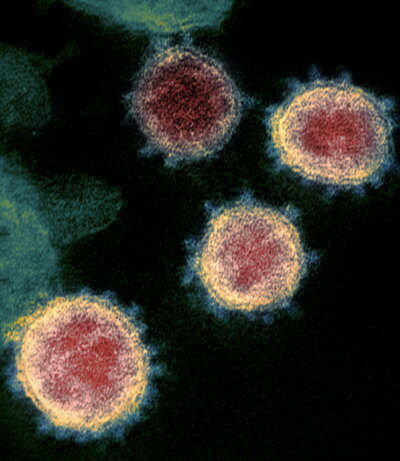
An international team of researchers including Nicholas Wu, a professor in the Department of Biochemistry, has published a new study which developed highly potent molecules that can neutralize SARS-CoV-2 by simultaneously targeting multiple sites of vulnerability on the virus.
In the study, “Structure-guided multivalent nanobodies block SARS-CoV-2 infection and suppress mutational escape,” researchers discovered several nanobodies that bind to the spike protein of SARS-CoV-2, the causal virus of COVID-19 pandemic. The work was published in Science.
Unlike human antibodies, which consist of a heavy chain and a light chain, nanobodies are single-chain antibody fragments that can be obtained from immunized llamas and alpacas. Nanobodies have several advantages compared to conventional human antibodies, according to Wu. They are cheaper to produce, have higher thermostability and deeper tissue penetration, making them good candidates for treating viral infections.
“Using these nanobodies as building blocks, we generated multivalent nanobodies that are substantially better in neutralizing viruses than the single nanobodies. We also found that these nanobodies can act synergistically,” Wu said.
In other words, using two nanobodies at the same time is much more potent than each of them alone, he said.
“In addition, we could not find any escape mutants to our multivalent nanobodies that simultaneously target two different sites on the spike protein, whereas escape mutants to single nanobodies can be readily observed,” he said.

Image credit: National Institute of Allergy & Infectious Diseases
The study, led by the University of Bonn, included, in addition to Wu, collaborators from Bonn, the Karolinska Institutet of Sweden, and Scripps Research.
Wu joined the University of Illinois in Fall 2020 and focuses his research on immune-virus interaction and virus evolution. He has been working on COVID-19 research since the outbreak began. For this study, he was involved in the production of the receptor binding domain (RBD) on the spike protein for immunizing llamas and alpacas. He was also involved in determining the structures of the nanobodies in complex with the receptor binding domain. Researchers at the University of Bonn have formed a start-up company to test the nanobodies in clinical studies.
Wu is also currently conducting research in characterizing the shared molecular features among anti-SARS-CoV-2 antibodies from different COVID-19 patients. The results from that study, he says, will not only benefit vaccine development and assessment, but also improve our fundamental understanding of the ability of the antibody repertoire to rapidly respond to viral infections.
